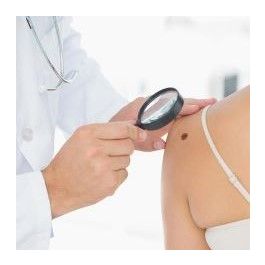| Provider |
 If any medical provider wants to add information to the summary medical description of this treatment a MORE button will be displayed in this column.
Information
If any medical provider wants to add information to the summary medical description of this treatment a MORE button will be displayed in this column.
Information
|
 The price quoted assumes:
GP Practice -Treatment is provided at a GP Practice.
Dental Practice -Treatment is provided at a Dental Practice.
Community -Treatment is delivered at your home, office or other community based setting.
Outpatient -Treatment or diagnosis is received before, or without, admission to a hospital.
Hospital DayCase -Attendance at a hospital without the need for an overnight stay.
Hospital SideRoom -The same setting as Day-case but aftercare and recovery is normally short.
Hospital Inpatient -At least one overnight stay.
Online -Treatment or service is delivered online.
Phone -Service is delivered by Phone call
Setting
The price quoted assumes:
GP Practice -Treatment is provided at a GP Practice.
Dental Practice -Treatment is provided at a Dental Practice.
Community -Treatment is delivered at your home, office or other community based setting.
Outpatient -Treatment or diagnosis is received before, or without, admission to a hospital.
Hospital DayCase -Attendance at a hospital without the need for an overnight stay.
Hospital SideRoom -The same setting as Day-case but aftercare and recovery is normally short.
Hospital Inpatient -At least one overnight stay.
Online -Treatment or service is delivered online.
Phone -Service is delivered by Phone call
Setting
|
 The prices shown are 'all inclusive'. For hospital surgical treatment prices all normal anticipated costs associated with your hospital admission are included. Pre and post operative consultation fees, medical consumables, hospital charges and all professional fees. Please note that any further outpatient costs that arise (for example physiotherapy, convalescence costs etc) are excluded.
Price
The prices shown are 'all inclusive'. For hospital surgical treatment prices all normal anticipated costs associated with your hospital admission are included. Pre and post operative consultation fees, medical consumables, hospital charges and all professional fees. Please note that any further outpatient costs that arise (for example physiotherapy, convalescence costs etc) are excluded.
Price
|
Healthcare coins© |
 If the provider is set up with us as a direct payee you may also pay them online. Or you can just book without any payment and pay them later.
Deposit
If the provider is set up with us as a direct payee you may also pay them online. Or you can just book without any payment and pay them later.
Deposit
|
 If the price guarantee is FIXED the price provided by the hospital or provider is fixed and final. There can be no additional cost for what is booked.
However some medical conditions can sometimes require unanticipated extra tests or unanticipated extra treatment. These are marked STANDARD by the hospital or provider so that you are at least aware of the risk that extra charges might, in some circumstances, arise.
Price guarantee
If the price guarantee is FIXED the price provided by the hospital or provider is fixed and final. There can be no additional cost for what is booked.
However some medical conditions can sometimes require unanticipated extra tests or unanticipated extra treatment. These are marked STANDARD by the hospital or provider so that you are at least aware of the risk that extra charges might, in some circumstances, arise.
Price guarantee
|
 This is the typical average waiting time between now and an attendance with the provider or the hospital’s consultant. You can agree a suitable appointment date with the provider once they make contact with you
Waiting times
This is the typical average waiting time between now and an attendance with the provider or the hospital’s consultant. You can agree a suitable appointment date with the provider once they make contact with you
Waiting times
|
|---|
A choice of booking options are available: Book now and... 'Pay Later', 'Pay Deposit' or 'Pay in Full Now'
Find another Provider:Click if you want to use a specific provider but the service is not listed.
What's Included In Your Treatment:
- Mole, lump, dermatology, cyst, rash, skin or allergy consultation
- Specialist assessment and diagnosis for rashes, cysts, skin itching, scars, eczema, abnormal skin growths, moles, skin lesions, leg ulcers, cutaneous pain
- If excision or removal of a mole, cyst, wart, lump is required further costs may arise
-
What information will your selected provider need from you?
-
What happens next?
-
Your questions answered
-
Feedback to Letsbuyhealthcare












